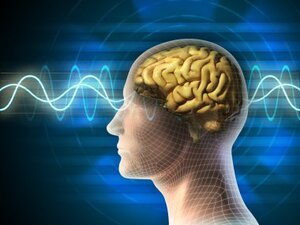Cognitive Test for Dementia: A Comprehensive Approach with Neurogenesis CMC
Body
As our population ages, the prevalence of dementia is on the rise, making early detection and accurate diagnosis more important than ever. Dementia is an umbrella term that describes a range of cognitive impairments affecting memory, reasoning, and other cognitive functions. A cognitive test for dementia is one of the most effective tools for identifying these impairments early, allowing for timely interventions that can improve quality of life. Neurogenesis CMC is at the forefront of offering comprehensive cognitive assessments that are tailored to each individual, ensuring precise diagnosis and personalized care.
Understanding Cognitive Testing for Dementia
Cognitive testing for dementia involves a series of structured assessments designed to evaluate various aspects of cognitive functioning. These tests measure memory, language abilities, problem-solving skills, attention, and other cognitive domains. The results of these tests can reveal patterns of cognitive strengths and weaknesses that are indicative of dementia or other neurological conditions.
The Importance of Early Detection
Early detection of dementia is crucial because it allows for the implementation of treatment strategies that can slow the progression of the disease. At Neurogenesis CMC, our cognitive tests are designed to detect even subtle changes in cognitive function, providing a critical window of opportunity for early intervention. Early diagnosis also helps patients and their families plan for the future, including making decisions about care, living arrangements, and legal matters.
Key Components of Cognitive Testing at Neurogenesis CMC
- Memory Assessment: One of the hallmark symptoms of dementia is memory loss. Our cognitive tests include various memory assessments, such as recalling a list of words or details from a story after a delay. These tests help differentiate between normal age-related memory decline and more severe memory impairments associated with dementia.
- Language and Communication: Language abilities often decline in individuals with dementia. Cognitive testing at Neurogenesis CMC includes assessments of language skills, such as naming objects, understanding spoken or written language, and fluency in speech. These tests help identify specific types of dementia, such as primary progressive aphasia, which primarily affects language abilities.
- Executive Function and Problem-Solving: Executive function refers to higher-level cognitive processes, such as planning, organizing, and problem-solving. Individuals with dementia often struggle with tasks that require these skills. Our cognitive tests evaluate executive function through tasks that involve following complex instructions, solving puzzles, and managing multiple steps simultaneously.
- Attention and Concentration: Maintaining focus and concentration is another area that can be affected by dementia. Cognitive tests at Neurogenesis CMC include tasks that require sustained attention, such as tracking objects or responding to specific stimuli. These tests help assess the extent to which attention deficits contribute to the overall cognitive impairment.
- Visuospatial Skills: Visuospatial skills involve the ability to understand and navigate the physical environment. These skills are crucial for everyday tasks such as driving, cooking, and finding one's way in unfamiliar places. Our cognitive assessments include tests that evaluate visuospatial abilities, helping to identify impairments that may affect an individual's ability to function independently.
The Process of Cognitive Testing at Neurogenesis CMC
At Neurogenesis CMC, the process of cognitive testing is designed to be thorough, personalized, and patient-centered. Here’s what you can expect:
- Initial Consultation: The process begins with an initial consultation with one of our experienced neuropsychologists. During this consultation, we gather detailed information about the individual's medical history, current cognitive concerns, and family history. This information helps us tailor the cognitive tests to the specific needs of the patient.
- Comprehensive Testing: Cognitive testing at Neurogenesis CMC typically involves several hours of testing, which may be conducted over one or more sessions. The tests are administered in a quiet, controlled environment to ensure accurate results. Throughout the process, our team provides support and guidance, making sure the patient is comfortable and at ease.
- Analysis and Interpretation: Once the testing is complete, our neuropsychologists analyze the results to identify patterns of cognitive strengths and weaknesses. These patterns are compared to normative data based on age, education, and other factors. The analysis helps determine whether the cognitive impairments are consistent with dementia and, if so, what type of dementia may be present.
- Feedback and Recommendations: After the results have been interpreted, we schedule a feedback session with the patient and their family. During this session, we explain the findings in detail, discuss the diagnosis, and provide recommendations for treatment or management. At Neurogenesis CMC, we believe in empowering our patients with the knowledge they need to make informed decisions about their care.
Benefits of Cognitive Testing at Neurogenesis CMC
- Accurate Diagnosis: Cognitive testing at Neurogenesis CMC provides a detailed assessment of cognitive function, allowing for an accurate diagnosis of dementia. This is essential for developing an effective treatment plan and ensuring that the patient receives the appropriate care.
- Personalized Care: Every individual is unique, and so are their cognitive challenges. Our cognitive tests are tailored to the specific needs of each patient, ensuring that we capture a comprehensive picture of their cognitive health. This personalized approach allows us to provide targeted recommendations that are most likely to benefit the patient.
- Holistic Support: At Neurogenesis CMC, we understand that dementia affects not only the patient but also their family. That’s why our cognitive testing process includes support for caregivers and family members. We offer guidance on how to best support the patient, as well as resources for managing the challenges of caregiving.
- Ongoing Monitoring: Dementia is a progressive condition, and cognitive function can change over time. At Neurogenesis CMC, we offer ongoing cognitive assessments to monitor the progression of the disease. Regular testing allows us to adjust treatment plans as needed and ensure that the patient continues to receive the best possible care.
Conclusion
Cognitive testing for dementia is a critical step in the early detection and accurate diagnosis of cognitive impairments. At Neurogenesis CMC, we are committed to providing comprehensive, personalized cognitive assessments that help our patients understand their cognitive health and take control of their care. With our state-of-the-art testing, expert analysis, and holistic support, Neurogenesis CMC is dedicated to improving the lives of individuals affected by dementia and their families.







Comments